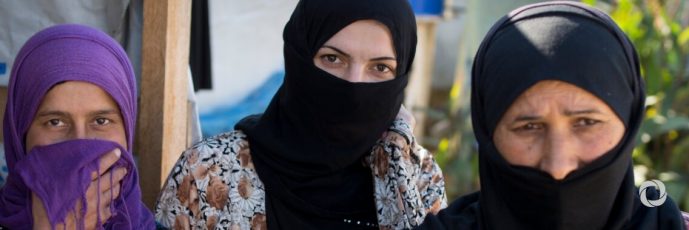 Gender-based violence on the rise during lockdowns
Gender-based violence on the rise during lockdowns
26 november 2020
By early April, over half the world’s population was living under lockdown, and women with violent partners found themselves trapped with their abusers and cut off from the support of friends and family. Within months of the outbreak starting, UN Women was warning of a Shadow Pandemic, as all types of violence against women and girls, but particularly domestic violence, intensified.
Refugee and displaced women were at greater risk from gender-based violence (GBV) even before COVID-19. The pandemic has heightened their vulnerability.
While data has been slow to emerge, with displaced women often afraid or unable to seek help, some patterns are becoming clear. Colombia’s Ministry of Health reported a nearly 40 percent increase of GBV incidents affecting the country’s Venezuelan population between January and September of this year, compared to the same period last year.
The Global Protection Cluster – a UNHCR-led network of NGOs and UN agencies providing protection to people affected by humanitarian crises – noted in August that gender-based violence was occurring at a higher incidence in 90 percent of its operations, including in Afghanistan, Syria, and Iraq. Meanwhile, nearly three-quarters of refugee and displaced women surveyed recently by the International Rescue Committee in three regions of Africa reported an increase of GBV in their communities.
Just as levels of violence against women have risen, lockdowns and other movement restrictions have made it more difficult for survivors to report abuse and seek help. Refugee women often lack access to public health facilities and other critical social services and are reliant on services available through NGOs and UN agencies. But COVID has forced many of those services to close and in camps from Kenya to Bangladesh, humanitarian workers have been unable to visit refugees or organize prevention activities.
“In March, we realized we weren’t able to do our normal activities,” said Gabriela Cunha Ferraz, a GBV officer with the UN Refugee Agency (UNHCR) in Kakuma refugee camp in north-western Kenya. “It forced us to start thinking about different ways of reaching people.”
In many locations, this has involved a shift to online support groups and tele-counseling. In Lebanon, for example, GBV staff moved from running prevention sessions for refugee women in physical safe spaces, to running them online.
Original source: UNHCR




No comments:
Post a Comment